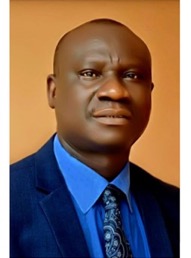News And PoliticsCommunications And EntertainmentSports And FitnessHealth And LifestyleOthersGeneralBusiness And MoneyWorldnewsNigerianewsRelationship And MarriageStories And PoemsArts And EducationScience And TechnologyCelebrityEntertainmentMotivationalsReligion And PrinciplesNewsFood And KitchenHealthPersonal Care And BeautyBusinessFamily And HolidaysStoriesIT And Computer ScienceRelationshipsSportsLawLifestyleComedyReligionLifetipsEducationMotivationAgriculturePoliticsAnnouncementUSMLE And MedicalsMoneyEngineeringPoemsSocial SciencesHistoryFoodGive AidBeautyMarriageQuestions And AnswersHobbies And HandiworksVehicles And MobilityTechnologyFamilyPrinciplesNatureQuotesFashionAdvertisementChildrenKitchenGive HelpArtsWomenSpiritualityQuestions AnsweredAnimalsHerbal MedicineSciencePersonal CareFitnessTravelSecurityOpinionMedicineHome RemedyMenReviewsHobbiesGiveawayHolidaysUsmleVehiclesHandiworksHalloweenQ&A
Top Recent
Loading...
You are not following any account(s)
profile/8037BFA3DAF6-5B0C-4ED2-A62B-1B33E3540F5D.jpeg.webp
GambiaUpdates

Gambias Economy Expected To Grow Despite US Tariff And Deportation Challenge
~0.5 mins read

Speaking In An Interview On Coffee Time, Governor Saidy Highlighted That The Economy Would Face Some Challenges, As The US Increases Its Tariffs.
“Recently The U.S. Authorities Decided To Introduce Tariffs, For The Entire World And We Fall In The 10 Percent Bracket,” The Governor Said. “And What This Will Do Is Affect Trade, Which Are Imports Into The Country, Because Countries Are Going To Now Feel Constrained In Terms Of Buying And Selling Goods Because Of This Tariff. As
profile/8037BFA3DAF6-5B0C-4ED2-A62B-1B33E3540F5D.jpeg.webp
GambiaUpdates
Challenges In Implementing Biodiversity Policy In Africa!
~0.4 mins read
significant Social, Political, And Economic Challenges To Conserving Biodiversity While Enhancing Human Well-being. The Sub-Sahara Region Is The Less Developed Regions In The World, Where The Poorest People Who Are Most Vulnerable To Biodiversity Loss Live, Are Also Regions Where Threats To Biodiversity Are The Highest. The Sub-Saharan Africa (SSA) Region Is A Good Illustration Of Such A Developing Region That Is At The Forefront Of Priorities In Terms Of Conservation As Well As Development Needs. The SSA Region Is Also Home To Almost One-quarter Of The Bi
profile/5377instablog.png.webp
Instablog9ja

Nigerian Army Pleads With Akwa-Ibom Youths To Join The Military
~3.2 mins read
profile/5683FB_IMG_16533107021641748.jpg
News_Naija

Customs Intercept Vehicles, Others Worth N1.7bn
~1.7 mins read
The Nigeria Customs Service, Federal Operations Unit Zone A, Ikeja, said it recorded 82 interceptions, including used vehicles popularly known as Tokunbo and other contrabands worth N1.7bn within the last four weeks. The Customs Area Controller in charge of the command, Kola Oladeji, disclosed this while addressing journalists at the command in Ikeja on Wednesday. He mentioned that the contrabands were intercepted within the southwestern states of Nigeria, including the Oyo and Ogun border axis, adding that six suspects were arrested in connection with the seizures of the contrabands from neighbouring countries. According to Oladeji, the seized contrabands include 3,832 bags of foreign rice, equivalent to seven trailers. “Others include 27 units of used vehicles, also known as tokunbo vehicles; 494 kegs of premium motor spirit, equivalent to 14,820 litres; 27 bales of used clothing; 95 bags of charcoal; and 3,643 kilogrammes of cannabis sativa, among others, which have a cumulative duty paid value of N1.7bn,” Oladeji said. The CAC pointed out that the unit recovered a total sum of N72.4m as revenue through the issuance of demand notices “as a result of the irregular declaration of consignments”. He vowed that the unit will continue to enforce the provisions of the Nigeria Customs Service Act 2023 as it relates to import and export goods to prevent revenue losses. Oladeji highlighted that the successes recorded so far were not on a platter of gold. “It took the painstaking efforts of our officers who spent hours on patrol and surveillance of our borders to achieve these seizures. Let me reiterate that we will not relent on our oars. Our resolve to tame the activities of illegal trans-border trade and other crime remains sacrosanct,” he said. According to him, the unit will continue to engage and sensitise the public on the social/economic implications of smuggling as well as perform the statutory function of enforcing compliance in line with government fiscal policy. He said that in line with the dictates of the NCS of promoting inter-agency cooperation and synergy, the seized 3,643kg of cannabis sativa will be handed over to the National Drug Law and Enforcement Agency for further investigation and subsequent prosecution. Oladeji explained that the onslaught against smugglers through their operation codenamed ‘Swift Sting Operations’ trade has continued to record significant successes. “This unit has since keyed into these laudable initiatives of the CGC by collapsing some patrol teams operating within the Lagos metropolis. This is aimed at removing unnecessary trade impediments and facilitating a business-friendly environment,” he said.
Read more stories like this on punchng.com
Loading...
 GambiaUpdates
GambiaUpdates
 Instablog9ja
Instablog9ja
 News_Naija
News_Naija